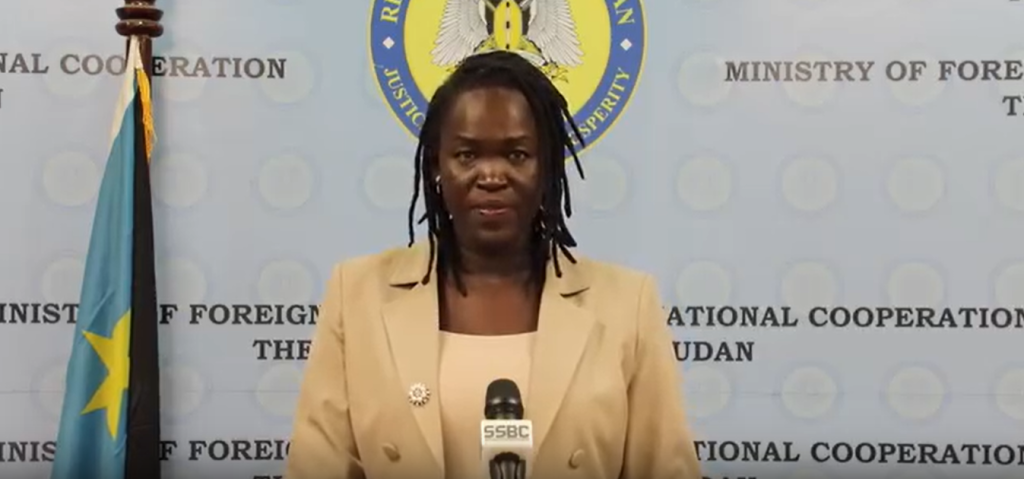South Sudan has agreed to receive a man previously deported from the United States, easing a diplomatic row that had escalated over visa restrictions.
The decision follows Washington’s announcement over the weekend that it would impose sweeping visa bans on all South Sudanese passport holders. U.S. Secretary of State Marco Rubio said the move came in response to Juba’s refusal to accept citizens deported from American soil.
Initially, South Sudan’s foreign ministry pushed back, stating the case centered on an individual wrongly labeled as South Sudanese. According to authorities, the man in question is actually from the Democratic Republic of Congo and was mistakenly repatriated.
However, in a revised statement issued on Tuesday, South Sudan announced it would now allow the man to enter the country “as a gesture of goodwill.” Officials confirmed he could arrive in Juba as early as Wednesday, with arrangements in place at Juba International Airport to facilitate his entry.
The ministry also reiterated its commitment to accept verified South Sudanese nationals facing deportation from the United States, signaling an effort to restore strained ties.
The row marks the first time under President Donald Trump’s second administration that the U.S. has enacted blanket visa sanctions on a specific country. Rubio also announced that South Sudanese nationals would be denied entry at all U.S. ports until further notice.
U.S. Deputy Secretary of State Christopher Landau dismissed South Sudan’s explanation regarding the individual’s nationality, citing that the country’s own embassy in Washington had authenticated the man’s South Sudanese identity. He criticized Juba’s later denial as “irresponsible.”
Meanwhile, South Sudan’s Information Minister Michael Makuei Lueth accused the U.S. of exploiting a diplomatic misunderstanding, noting that “no sovereign nation” would accept individuals falsely identified as its citizens.
This diplomatic friction comes as political tensions deepen in South Sudan. First Vice-President Riek Machar has reportedly been placed under house arrest, raising fears of renewed conflict. President Salva Kiir has accused Machar of instigating unrest.
Last month, the U.S. ordered all non-essential diplomatic staff to leave South Sudan, citing the risk of violence amid a fragile peace deal signed in 2018.
Thousands of South Sudanese in the U.S. have been protected under Temporary Protected Status (TPS), which is due to expire on May 3.


